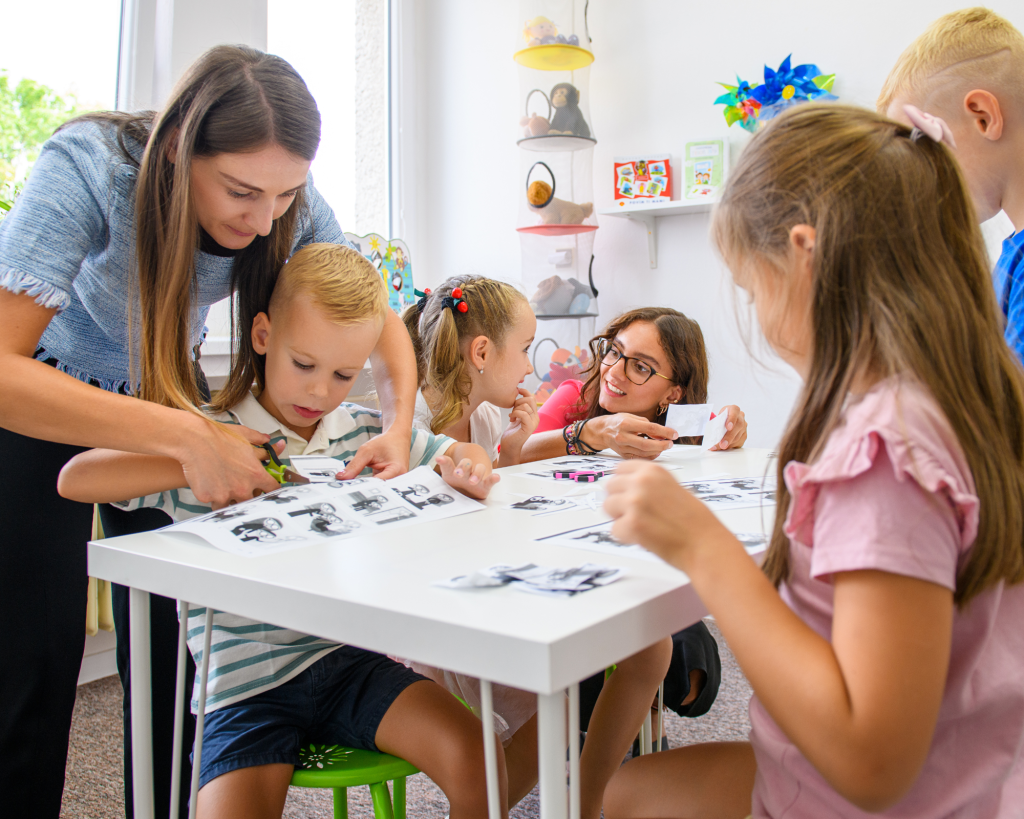At Happy Dots Occupational Therapy for Children we provide services to help children develop age-‐appropriate self-‐care, play, leisure and school related skills. Through the use of purposeful activities our therapists help children develop their skills and achieve the maximum level of independence.
But how do you know if your child needs Occupational Therapy? These are some of the red flags to look out for:
- Does your child have difficulty hopping, skipping, and catching a ball?
- Are they clumsy, frequently trip and bump into things?
- Do they struggle to keep up with their peers in their sporting team?
- Do they struggle to hold a pencil correctly?
- Can they use scissors efficiently?
- Have they got weak fingers and poor dexterity?
- Is their handwriting legible?
- Can they use cutlery efficiently?
- Are they able to do up buttons and tie their shoelaces?
- How are their organisational skills?
- Can they self-‐regulate their own behaviour?
- Do they have strong sensory preferences or dislikes?
- Can they transition with ease?
An assessment takes around 1.5 hours. This includes time to test your child and for the Occupational Therapist to provide some preliminary feedback to you about your child’s performance. It is ideal if one of the child’s main caregivers can attend the assessment without bringing other siblings with them. This means the caregiver can sit in and watch their child being tested.
The age of your child will determine what assessments will be used and what areas will be assessed. The identified concerns you have about your child will also be taken into consideration. The therapist will generally use both standardised tests and observational based tests when assessing your child.
The areas that will be assessed may include:
- Fine motor skills e.g. Pencil grip, strength, muscle tone, dexterity
- Handwriting e.g. spatial orientation, letter formations,
- Written Expression e.g. Punctuation, sentence and paragraph structure, planning and organisation, knowledge of text
- Visual motor skills e.g. Design
- Cognitive and perceptual skills e.g. Visual processing tasks
- Executive Functioning Skills e.g. organisation, working memory
- Gross Motor Skills e.g. Muscle tone, core strength, locomotor skills, ball skills
- Motor planning skills e.g. Performing motor tasks with planning involved
- Bilateral co-‐ordination g. Star jumps, scissor jumps
- Sensory processing e.g. addressing auditory, visual, tactile, and vestibular processing.
- Self regulation e.g. Managing their behaviour in a variety of environments
- Social-‐emotional skills g. separating from parent, playing with peers.
- Play skills e.g. Imaginary
Following the assessment, if the OT feels that your child will benefit from therapy they will book them in for a weekly, fortnightly or monthly appointment. About 2 weeks after your assessment you will be invited to the clinic to review your childs report and to discuss goals for your child along with any future recommendations.
If you have any further questions about the OT assessment process and what is involved please do not hesitate to contact us at (02) 4959 8920 or admin@happydots.com.au.



